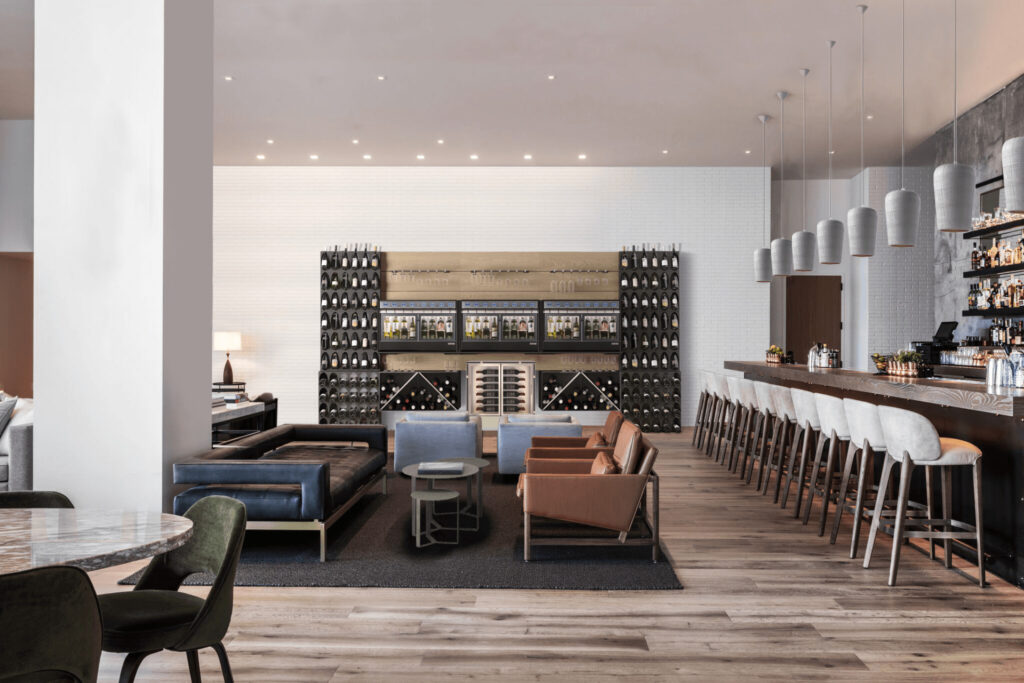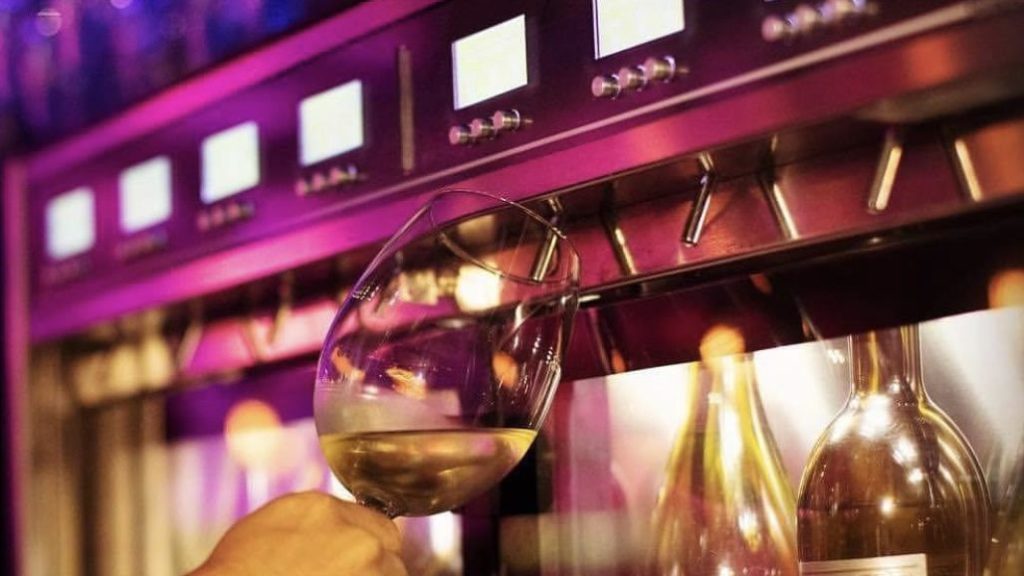
Photo by Wineemotion USA
In this ever-changing age of technology and convenience, it can be difficult for some industries to look past traditional formulas of success and embrace new concepts. The hospitality industry, and its customer service sector, are no exceptions. In fact, these fields have witnessed some of the most profound technological advancements in recent years, like automation, Artificial Intelligence, and drone delivery, to name just a few. As a result of these influential technologies, businesses are now recognizing, via rising trends, the needs and demands of their audiences and implementing procedures to give their customers a better, more personalized experience. One of the biggest game-changers among these trends is self-service.
The rise of self-service across industries has grown exponentially, showing no signs of slowing down. And that is because of the need for it, not to mention its potential for universal staying power. Self-service, whether accessed via mobile apps or chatbots, is proving to be a leader of the customer service revolution.
But why is that? It’s not a big secret. The answers are quite simple. Here are some of the reasons why audiences continue to opt for self-service when the option is available.
Unlike traditional customer service, a self-service option allows hotel and restaurant guests to control the degree of personalization regarding their desired resolution if and when they are faced with an issue. While a member of your staff is surely capable of assisting a guest, the type of help that guest receives, though helpful, might just be different from what they were expecting––especially if it is the second time they are seeking help for the same issue and a different member of staff had assisted them prior. Control and consistency are key customer service takeaways. Allowing a guest to resolve issues to their level of satisfaction is the new norm.
As our collective lives continue to shift away from traditional structures at work (agile office environments, remote working, teleconferencing), and at home (mobile food delivery apps, self-directed vacuums, intelligent personal assistants), the need for convenience outside of these realms must be met and maintained. This is where businesses like hotels should recognize and act on the opportunity to adapt. Businesses that don’t adapt should expect to lose guests to competitors.
A byproduct of the above two benefits, speed is a naturally occurring result of efficient customer service. But not only that, when a business aligns itself with self-service elements, the level of productivity in-house grows once staff members are utilized more effectively.
Self-service not only provides users with an experience that is consistent, convenient, and fast, but it also assists businesses by streamlining workflow across all levels of staff. If FOH or customer-facing workers are busy performing mundane operational tasks, they have less time to interact with guests and provide genuine customer experience. By delegating these slower tasks to automated, self-serving technologies, staff can focus their attention on the guests.
Members of the hospitality industry should not view self-service as an ugly non-human life form coming to steal jobs. This is not the case––after all, chatbots and check-in apps will never be able to substitute the one-on-one interaction that only a human can provide. On the contrary, self-service is an enhancer of traditional customer service, allowing guests to personalize their experience within an establishment. Once the guest has received their desired level of personalized service, they are much more likely to become repeat customers.
As much as audiences seem to want self-service options, what they want more than is efficient self-service. What good is it standing in line at an automated hotel check-in kiosk if, once you get up to the screen, you discover it doesn't work? Customer loyalty is everything nowadays, and customers who have a poor experience as a result of broken automated equipment will let you know. Audiences are fickle this way––on the one hand, many will prefer to check-in at the self-service kiosk. But if the kiosk is out of order, and members of staff are too busy to assist them, the customer will likely remember this misstep. And they might even tell a friend about their bad experience. This is why hospitality businesses need to invest in technologies that are streamlined and proficient––anything that will leave customers satisfied.
Believe it or not, convenient and efficient self-service is as much of a crowd-pleaser among businesses as it is with customers. Why? Because of the inherent opportunities for increased revenue.
Building brand loyalty is one of the ultimate goals of good customer service. By cataloging a guest's likes and dislikes, their typical spend, their gender––even their mini-bar selection––hotels can determine how to keep that guest happy throughout their stay, whether it is through promotions, personalized recommendations, or product up-selling.
Simply put, self-service platforms are never afraid to up-sell to guests. What’s more, they typically have access to all of the above-mentioned customer data, allowing them to target specialized products. These features allow guests more purchase opportunities without the pressure of a human face on the other end. And satisfied guests usually spend more money.
The degree of accessibility offered by automation and self-service tools works within the realms of marketing, too. The same hotel kiosk that stores client information can dissect that profile and target past guests with discounts and promotional offers, encouraging them to come back as a return guest. Maybe an exclusive bottle of wine that the guest enjoyed during their last stay is back in stock? An incentive so simple can potentially yield big return dollars.
And speaking of wine…

Photo by Wineemotion USA
The Wineemotion wine preservation and dispensing system is the perfect addition to your hospitality facility––hotels (lobbies and in-suite), restaurants, bars/lounges, and recreation centers because it doesn’t replace the traditional guest experience but rather enhances it. This commercial wine dispenser encourages your guests to sample different varieties of wine by the glass without fear of spoiling the bottle, thus eliminating the high costs associated with disposal. And, best of all, with the convenient customer pre-paid card feature or hotel room key interface, guests can select and enjoy their very own a la carte selection––the utmost in elevated self-service.
So, what are some additional benefits of the Wineemotion wine dispenser system? And how would it benefit your business?
One of the best ways to get an audience interested in your new product is to have them roll up their sleeves and try it out. By staging a hands-on demonstration with customers, they are not only partaking in a fun and interactive shared experience, but they will also learn a lot more about wine as a result. By offering an engaging, interactive experience with a seamless product, audiences will instinctively want to know more about it.
What’s more, the Wineemotion system offers an added opportunity for your front-of-house staff, including bartenders, to interact with guests, creating a more hospitable and informed environment. Staff can serve as product educators, suggesting wines that guests may not be aware of, thus elevating your establishment’s reputation as a destination for sommeliers and knowledgeable connoisseurs.
The Wineemotion system’s sleek design and state-of-the-art display features make for an immediate conversation starter. Attract your guests’ eyes and attention by showcasing all of your premium by-the-glass offerings with the most advanced and trusted wine dispenser on the market.
Every hospitality owner knows the hassle and exorbitant costs associated with disposing of spoiled wine. Wineemotion systems allow you to side-step the short shelf-life of any bottle and significantly reduce the threat of expiration with its guaranteed 30-day preservation feature. Bottles stay fresher, longer. And, you also add to the cache of your business by being able to offer premium labels of wine by the glass, as well as by the bottle.
The Wineemotion wine dispenser offers several pouring options, ensuring that every guest receives exactly the level of wine they want. Tasting pour, half-glass pour, and full-glass––the choices, while varied, provide an effective opportunity to up-sell to customers. By offering an initial tasting pour, guests are guaranteed to get the exact glass they want, further enhancing their overall experience. And, the savings will show themselves. Over-pouring is a common pitfall in the hospitality industry. With Wineemotion, your business can potentially hang onto some of the thousands of dollars lost each year when premium bottles are tipped too far.
There you have it! A comprehensive look at burgeoning self-service technologies. While the figures may not be typical across all establishments, the undeniable and universal fact is that the self-service economy is here to stay and businesses need to get on board with the shift towards creating improved guest experiences. Hopefully, the above points have highlighted the benefits, and the products available to bolster your revenue. So, are you finally ready to make the thriving self-service industry work for you?
